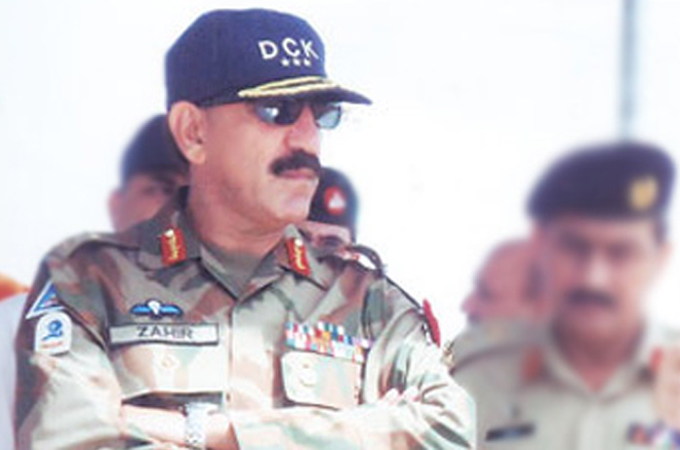Pakistan appoints new head of ISI spy agency
Prime minister Gilani announces Lieutenant-General Zaheer Islam as director-general of Inter-Services Intelligence.

 |
| Lieutenant-General Zaheerul Islam replaces Ahmed Shuja Pasha as the ISI chief |
Yusuf Raza Gilani, the Pakistani prime minister, has appointed a new director-general of the country’s powerful spy agency, his office said in a statement.
“The prime minister has appointed Lieutenant-General Zaheer-ul-Islam as the new DG-ISI,” the statement released on Friday said, referring to the Directorate of Inter-Services Intelligence (ISI).
Islam is the commander of the V Corps, one of the most important in the army and based in Karachi, Pakistan’s largest city and its commercial hub.
“The outgoing ISI chief lieutenant general Ahmed Shuja Pasha is retiring on March 18 and Islam will take up the position then,” the official said.
Pasha, who was appointed ISI chief in September 2008, is considered to be close to Ashfaq Kayani, Pakistan’s military chief, who ran the intelligence agency himself until October 2007.
|
AJE’s Imran Khan talk about the new appointment |
Tensions between the army and government soared last year over a note, alleged to have ben sent at the behest of Asif Ali Zardari, the president, seeking Washington’s help to curb the military’s powers amid fears of a coup after the US raid that killed Osama bin Laden in the city of Abbottabad.
The memo allegedly delivered to the then chairman of the US Joint Chiefs of Staff, Admiral Mike Mullen, was first made public by a US-Pakistani businessman in October.
Both Pasha and Kayani wanted a judicial inquiry into the affair, dubbed “memogate”, while the civilian government sought to play it down. A judicial commission appointed by the Supreme Court is investigating the matter.
Pasha’s departure is likely to come as a relief to the US intelligence community which had a working, if frosty, relationship with him.
The ISI has helped capture or kill hundreds of senior al-Qaeda fighters in Pakistan since it joined the “war on terror” in 2001, including Khalid Sheikh Mohammed, the self-confessed mastermind of the 9/11 attacks on the US.
But many Western officials suspect that, having helped to create the Taliban that ruled Afghanistan from 1996 to 2001, the organisation has been playing a double game.
Pakistan strongly denies any such links, although former military ruler Pervez Musharraf admitted in 2006 that some retired Pakistani intelligence officers may have been abetting fighters.